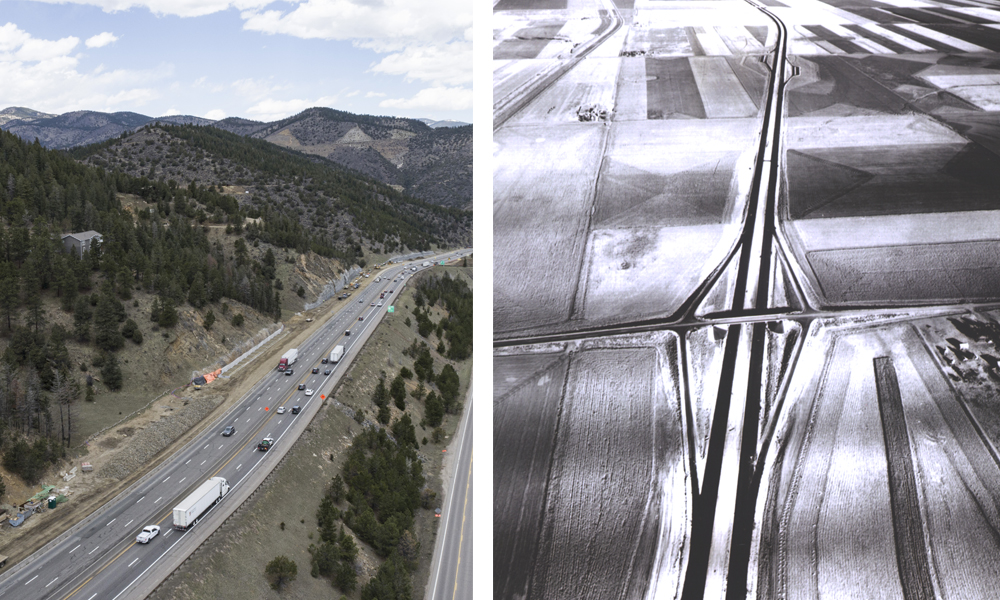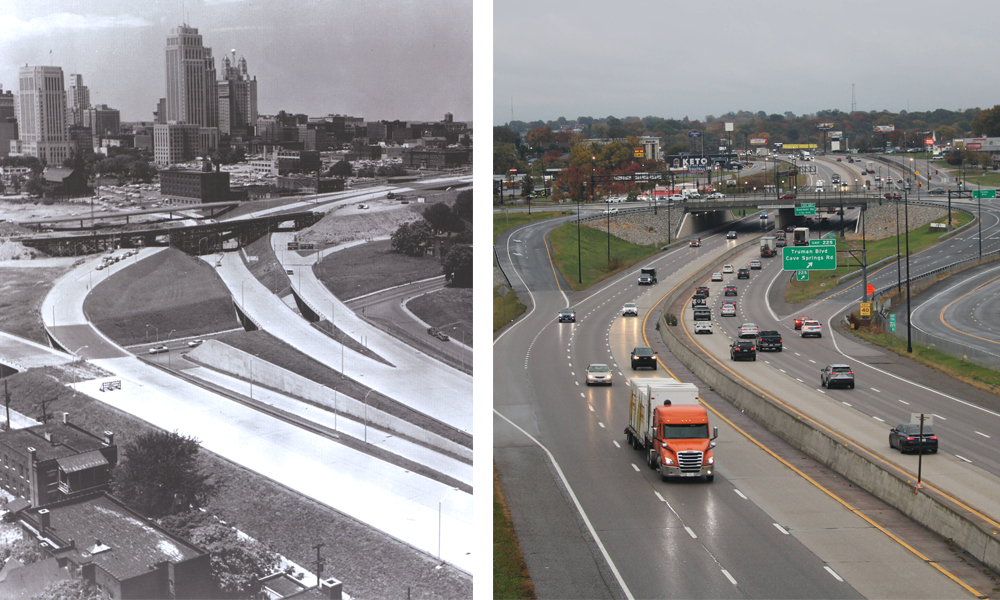Snapshots of the I-70 Corridor
Interstates get a bum rap. Author William Least Heat-Moon said to leave them and take the blue highways instead. But when I was growing up in Moon’s home territory in Kansas City, the four-hour drive on I-70 to my birth region of Greater St. Louis was familiar and familial. Missouri’s 250 miles of I-70 were the most direct route, after all, to two grandmas, two grandpas and that A&W at the Warrenton exit where they set the tray on your rolled-down window and the root beer floats were astounding.
Little did I know the same highway was actually 2,151 miles long (Baltimore to Utah). I didn’t know that it wasn’t always like this … the final section wasn’t finished until 1992 in Glenwood Canyon, Colorado. And I certainly didn’t know that the very first section of I-70 was originally constructed in Missouri in the St. Louis-area territory of St. Charles County, where ground was broken in August 1956.
“However, being the first also makes it the oldest,” said the Missouri Department of Transportation in an October 2024 release celebrating the ribbon-cutting for the newly completed $62 million Cave Springs to Fairgrounds design-build project in St. Charles County that includes two reconstructed interchanges, a new overpass and a new outer road at one interchange, among other improvements. Missouri’s FY2024 budget provided $2.8 billion in general revenue for the costs to plan, design, construct, reconstruct, rehabilitate and repair three lanes in each direction on nearly 200 miles of I-70 from Blue Springs in the Kansas City area to Wentzville on the approach to the St. Louis metro.
It’s one of a number of big projects along the entire national Interstate, including upgrades by the Colorado DOT to the Eisenhower Johnson Memorial Tunnel that crosses the Continental Divide at over 11,100 feet in altitude about 60 miles west of Denver and the massive $700 million I-70 Floyd Hill Project that will improve eight miles of the I-70 Mountain Corridor from west of Evergreen, Colorado, to eastern Idaho Springs.

The $700 million I-70 Floyd Hill Project will improve eight miles of the I-70 Mountain Corridor in Colorado.
Photo courtesy of Colorado DOT
A 1963 photo of I-70 in Kansas approaches the level of fine art. I-70 projects in Kansas include a viaduct replacement in the state capital of Topeka and five miles of pavement replacement in Junction City, among others.
Photo courtesy of Kansas DOT
The Colorado DOT notes that the Mountain Corridor “acts as an economic gateway for the state of Colorado and the nation. Home to long-time residents, dozens of large and small businesses and tourism traffic, this section of I-70 is in desperate need of improvements. CDOT spent several years studying the corridor, meeting with residents, stakeholders and community leaders, and drafting potential solutions for this corridor whose aging infrastructure is long overdue for replacement.”
Construction began in July 2023 and will continue until late 2028.
Back in Missouri, completion of the corridor project is anticipated by the end of 2030, said the Missouri DOT, noting the corridor’s importance as an economic engine.
It’s no Hyperloop — the touted superfast transit system founded and then mothballed by Elon Musk that was going to reduce Kansas City-to-St. Louis to a 30-minute trip.
But if you went that fast, there’d be no time for a root beer stop.

